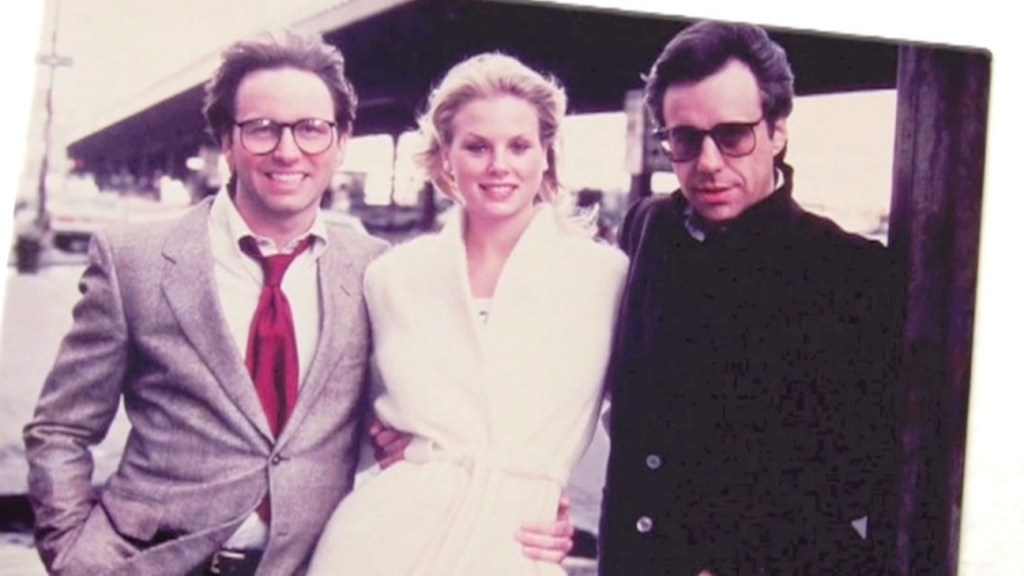Subscribe for full access to The Hollywood Reporter
Subscribe for full access to The Hollywood Reporter
The groundswell in favor of reconsidering ‘They All Laughed’ alongside Peter Bogdanovich’s most significant work continues with this exhaustive appreciation.
By David Rooney
Chief Film Critic
How fitting that 32 years after the Venice Film Festival opened with They All Laughed, Peter Bogdanovich’s swirling love letter to love and to New York City, the director is back on the Lido as the subject of a documentary focusing on that long-overlooked romantic caper comedy and its turbulent backstory. This is engrossing material, and its specificity alone makes One Day Since Yesterday worth watching. But while there’s no doubting director Bill Teck’s passion for the project, his inexperience as a filmmaker shows in the disorganized, technically rough study, which outstays its usefulness by a good half-hour, loitering over ground already covered.
Bogdanovich (also in Venice to present his new comedy, She’s Funny That Way) calls They All Laughed his favorite of his films. It was doomed during its 1981 domestic release after Fox shelved the picture following lukewarm test screenings, and the director bought it back to distribute on his own dime, reportedly at a cost of $5 million. This was long before the proliferation of indie boutiques and self-distribution, and Bogdanovich’s Moon Pictures simply lacked the clout to keep the movie in theaters, despite some glowing reviews and solid business in key markets.
That commercial failure has been steadily vindicated over the years, starting with the belated video release and then the 25th-anniversary DVD edition in 2006. A number of influential directors have expressed their admiration for They All Laughed, including Wes Anderson, Noah Baumbach and Quentin Tarantino, the latter interviewed here at length. Critics also weigh in — among them the late Andrew Sarris, Molly Haskell and The Hollywood Reporter’s Todd McCarthy — with views on how the film fits into Bogdanovich’s extraordinarily cine-literate body of work, sitting right at the tail end of the New Hollywood wave.
What made the film’s initial misfortunes sting far more than just the financial loss was the director’s deep personal investment in it. He recruited his Saint Jack lead Ben Gazzara to star opposite Audrey Hepburn in a role written for her. He coaxed John Ritter to display slapstick skills that both evoked and updated the screwball classics that Bogdanovich adores. He filled out the cast with friends and former flames, among them co-writer Blaine Novak, George Morfogen, Colleen Camp and Patti Hansen, even enlisting his daughters from his marriage to Polly Platt to play Gazzara’s kids.
But most of all, the movie came to represent a eulogy for his muse, Dorothy Stratten, the 20-year-old former Playboy model, whom Bogdanovich claims he loved more than any woman before or since. When she was brutally murdered by her estranged husband after shooting They All Laughed, completing the picture and getting it seen became essential to the shell-shocked Bogdanovich’s sanity. He also wrote a book about Stratten, The Killing of the Unicorn, to help put the devastating experience into perspective.
Insights on the making of the film and its troubled afterlife come from Gazzara (like Sarris, interviewed for the film before his death in 2012), Camp and Morfogen, as well as Bogdanovich’s daughters and sister. Also represented is Louise Stratten, Dorothy’s younger sibling, who subsequently was married to Bogdanovich for 12 years. (No mention is made of the murky controversy over Louise’s age when their friendship progressed to romance. Nor of the Bob Fosse film about Dorothy, Star 80, in which a fictionalized Bogdanovich is depicted.)
Teck does a solid enough job contextualizing They All Laughed within the director’s output. With reasonable economy, he details how the dazzling triple whammy of The Last Picture Show, What’s Up, Doc? and Paper Moon gave Bogdanovich power in Hollywood but also celebrity at a time when the director as star was less common. Those hits gave him a freedom enjoyed by few filmmakers in town, resulting in such uncommercial nostalgia trips as Daisy Miller, At Long Last Love and Nickelodeon. His perceived lack of humility made those flops an opportunity for schadenfreude; some claim that resentment continued even in the wake of the Stratten tragedy.
One Day Since Yesterday is less incisive at tracking the films that followed They All Laughed. Bogdanovich’s return to features with 1985’s Mask receives the most attention, with a battle over final cut and music inviting fresh charges of hubris. But where Teck goes terribly wrong is in his cluelessness about how to wrap up the documentary. Suitable endings present themselves several times, but instead he reverts to repetitious valentines to the 1981 movie, and sloppy coverage of its gradual rediscovery over the past 15-20 years.
There’s so much prime material here, and more than enough interesting commentary and anecdotes from the interviewees to suggest the film could benefit from being re-edited with a bit more snap. Problems with lousy sound quality on some of the talking-head clips might also be addressed. But if nothing more, the doc should serve to draw first-timers as well as second-look viewers back to an under-appreciated and highly personal work by an important filmmaker.
Production company: Lo’77
With: Peter Bogdanovich, Ben Gazzara, Jeff Bridges, Andrew Sarris, Quentin Tarantino, Cybill Shepherd, Colleen Camp, George Morfogen, Frank Marshall, Molly Haskell, Louise Stratten
Director: Bill Teck
Producer: Victor Barroso
Executive producers: Fernando Zulueta, Ignacio G. Zulueta
Director of photography: Bill Teck
Editor: Mario de Varona
118 minutes
Sign up for THR news straight to your inbox every day
Sign up for THR news straight to your inbox every day
Subscribe for full access to The Hollywood Reporter
Send us a tip using our anonymous form.

